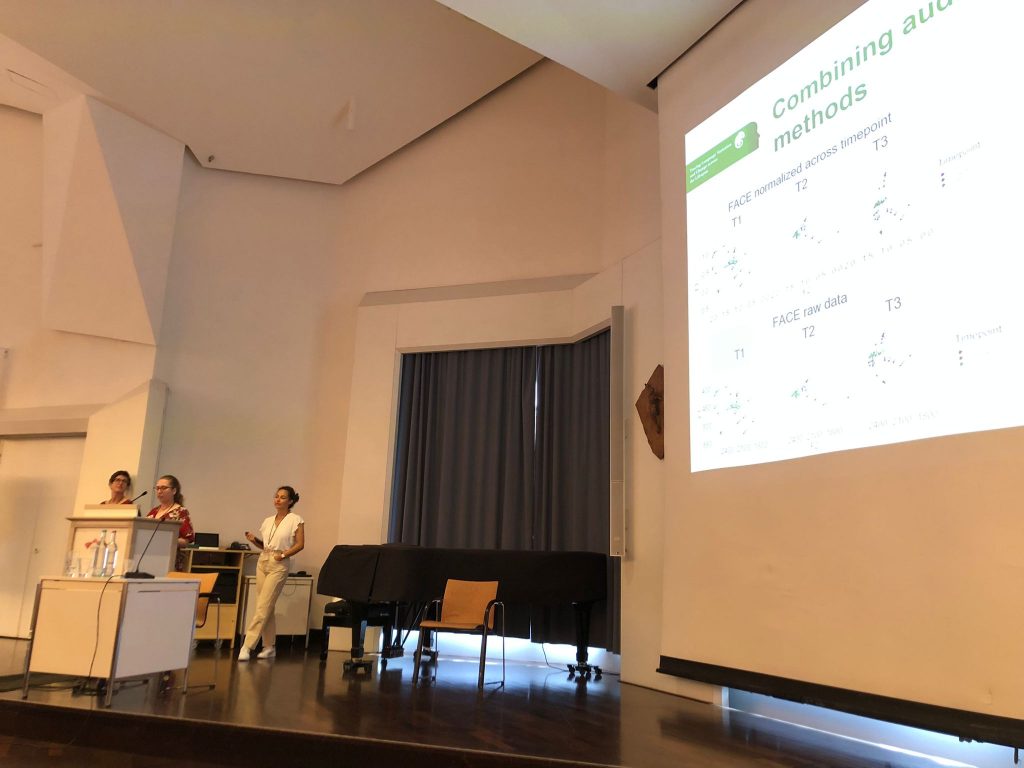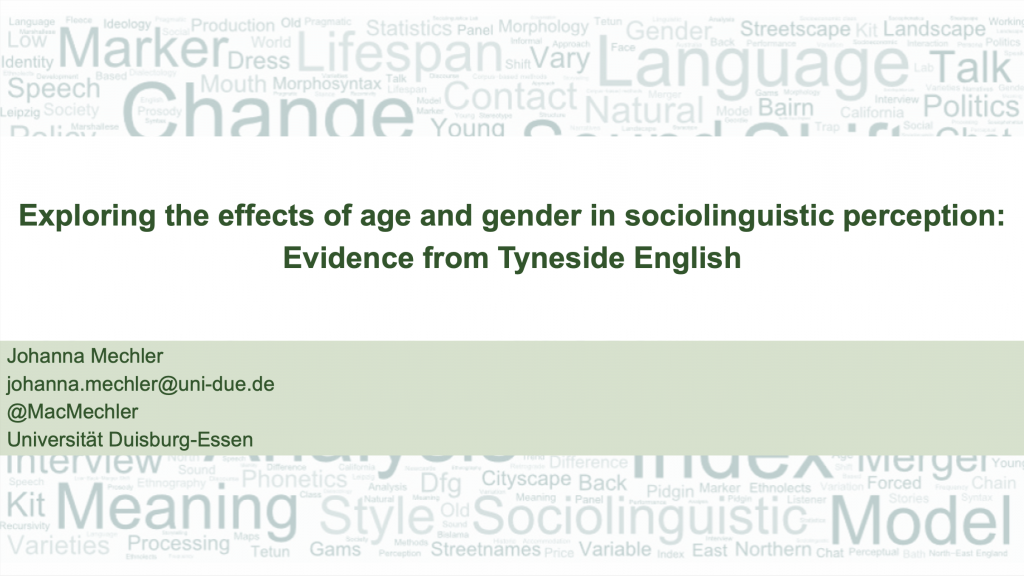
It’s been a while but we’re back with another blog post! This time, we’ll report on our first in-person conference in over two years.
During the first week of August, members of the LaVaLi team attended the Seventeenth International Conference on Methods in Dialectology (Methods XVII) in Mainz. Over the course of five days, we heard talks on (Dia)Lects in the 21st Century (the conference theme), took part in discussions and got to meet fellow linguists from all over the world – fun!
We also presented our findings from the DFG-funded LaVaLi project which is concerned with the way speakers show variation and change in their language patterns as they grow older and move through different life stages. We’ve summarized our talks below!
Johanna Mechler on the perception of (ing) across the lifespan
First, Johanna Mechler reported on differences in how speakers are perceived as they move from adolescence to middle age. In her talk, she focused on how the age of a speaker influences their rating on a professionalism scale, e.g., do we rate younger or older voices as more professional? She found that older speakers are being perceived as more professional in comparison to younger speakers. Her analysis also revealed that whether speakers produced /ing/ or /in/ as in „baking“ or „bakin'“ did not impact their professionalism ratings.
A team effort on the realization of FACE and GOAT across the lifespan

Lea Bauernfeind, Carina Ahrens, James Grama, Mirjam Eiswirth and Isabelle Buchstaller presented their work on how speakers from Tyneside in North East England change over their lifespan in regard to the way they realize the FACE vowel in words like estate, awake, and say. We observe that patterns of FACE realizations are socially niched, i.e., the way speakers change or remain stable in their linguistic choices over time is connected with their individual paths of life. In Tyneside, speakers usually prefer the monophthongal variant of FACE over diphthongal variants. However, some speakers – especially teachers – favor the diphthong instead. In line with previous research we hypothesize that they lean towards producing “polite and posh” variants as they are professionals of the language and act as role models for the children.
We loved hearing about new approaches and findings from our colleagues from all over the world and we enjoyed presenting our research and engaging in fruitful discussions. Methods XVII truly was a blast! A big thank you to the organizers – Susanne Wagner and team!

